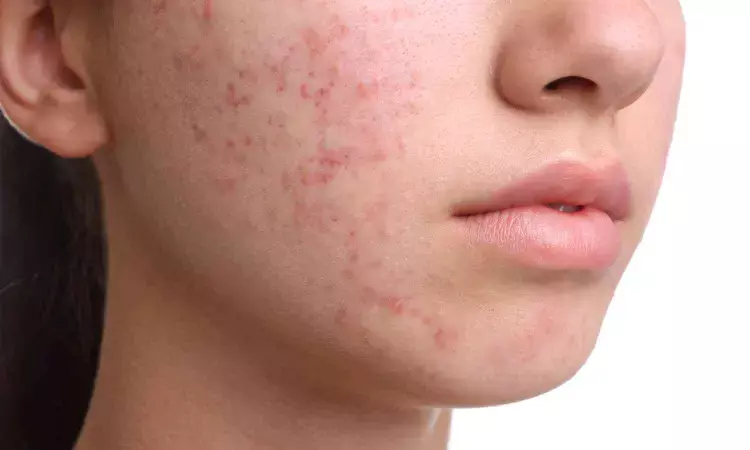- Home
- Medical news & Guidelines
- Anesthesiology
- Cardiology and CTVS
- Critical Care
- Dentistry
- Dermatology
- Diabetes and Endocrinology
- ENT
- Gastroenterology
- Medicine
- Nephrology
- Neurology
- Obstretics-Gynaecology
- Oncology
- Ophthalmology
- Orthopaedics
- Pediatrics-Neonatology
- Psychiatry
- Pulmonology
- Radiology
- Surgery
- Urology
- Laboratory Medicine
- Diet
- Nursing
- Paramedical
- Physiotherapy
- Health news
- Fact Check
- Bone Health Fact Check
- Brain Health Fact Check
- Cancer Related Fact Check
- Child Care Fact Check
- Dental and oral health fact check
- Diabetes and metabolic health fact check
- Diet and Nutrition Fact Check
- Eye and ENT Care Fact Check
- Fitness fact check
- Gut health fact check
- Heart health fact check
- Kidney health fact check
- Medical education fact check
- Men's health fact check
- Respiratory fact check
- Skin and hair care fact check
- Vaccine and Immunization fact check
- Women's health fact check
- AYUSH
- State News
- Andaman and Nicobar Islands
- Andhra Pradesh
- Arunachal Pradesh
- Assam
- Bihar
- Chandigarh
- Chattisgarh
- Dadra and Nagar Haveli
- Daman and Diu
- Delhi
- Goa
- Gujarat
- Haryana
- Himachal Pradesh
- Jammu & Kashmir
- Jharkhand
- Karnataka
- Kerala
- Ladakh
- Lakshadweep
- Madhya Pradesh
- Maharashtra
- Manipur
- Meghalaya
- Mizoram
- Nagaland
- Odisha
- Puducherry
- Punjab
- Rajasthan
- Sikkim
- Tamil Nadu
- Telangana
- Tripura
- Uttar Pradesh
- Uttrakhand
- West Bengal
- Medical Education
- Industry
SA-PCT Cleanser Effectively treats Acne without compromising Skin barrier: Study

A new study published in the Journal of Drugs in Dermatology showed that while maintaining the integrity of the skin barrier, a new salicylic acid (SA)-polymeric cleansing technology (PCT) cleanser successfully treats acne-prone skin.
Inflammatory lesions (pustules, papules, and nodules) and non-inflammatory lesions (comedones) are the hallmarks of acne vulgaris, a common inflammatory skin disorder. The quality of life is greatly impacted by this disorder, which is most common in adolescence but frequently advances into adulthood. Excess sebum production, the presence of the C. acnes bacterium on the skin, follicular hyperkeratinization, and inflammation are the four primary pathogenic variables linked to the development of acne.
Salicylic acid is one treatment option that has anti-inflammatory, anti-bacterial, sebum-reducing, and exfoliating properties. Although there are various forms of SA, SA in cleansers offers a more patient-favored and straightforward full-face and body treatment regimen. However, SA can worsen skin barrier disruption, causing irritation and poor compliance, when combined with harsh surfactants typically found in lathering cleansers.
Therefore, the effectiveness of a new acne cleanser that contains 2% salicylic acid (SA), polymeric cleansing technology, and a microgel complex in treating mild to moderate acne while preserving the integrity of the skin barrier was assessed in this study.
Measurements of transepithelial electrical resistance (TEER), IL-1α release, and hyperkeratinization were used to evaluate the impact of cleansers on the skin barrier on epidermal equivalents. Transepidermal water loss (TEWL), skin dryness, and erythema were evaluated in a 5-day exaggerated arm wash (EAW) research (n=33) in comparison to benchmark cleansers. A 12-week face research (n=35) assessed the impact on lipid profiles, acne reduction, and esthetic improvements. Throughout, the product's tolerability and safety were observed.
The innovative SA-PCT with microgel complex cleanser preserved the integrity of the epidermal barrier in comparison to a traditional SA-surfactant cleanser, as evidenced by increased TEER (P<0.001), lower IL-1α release (P<0.0001), and no discernible hyperkeratinization (P<0.0001) in pre-clinical trials.
Clinical findings revealed no lipid barrier disruption with notable decreases in acne lesions beginning at week 4, reduced skin irritation (dryness: P<0.01, erythema: P<0.001), and less barrier disruption through decreased TEWL (P<0.001).
Self-reported improvements in skin oiliness and significant objective clinical changes in skin tone, texture, and post-inflammatory hyperpigmentation were seen (P<0.05). There were no reports of skin irritation, and the cleanser was well accepted. Overall, these outcomes show how well the new SA-PCT cleanser works to improve acne-prone skin while preserving the skin's protective layer.
Source:
Hussain, R., Miller, D., Shyr, T., Friscia, D., Li, W.-H., Parsa, R., & Zeichner, J. (2025). Novel 2% salicylic acid cleanser with Polymeric Cleansing Technology treats acne without compromising skin barrier. Journal of Drugs in Dermatology: JDD, 24(6), 570–578. https://doi.org/10.36849/JDD.9019
Neuroscience Masters graduate
Jacinthlyn Sylvia, a Neuroscience Master's graduate from Chennai has worked extensively in deciphering the neurobiology of cognition and motor control in aging. She also has spread-out exposure to Neurosurgery from her Bachelor’s. She is currently involved in active Neuro-Oncology research. She is an upcoming neuroscientist with a fiery passion for writing. Her news cover at Medical Dialogues feature recent discoveries and updates from the healthcare and biomedical research fields. She can be reached at editorial@medicaldialogues.in
Dr Kamal Kant Kohli-MBBS, DTCD- a chest specialist with more than 30 years of practice and a flair for writing clinical articles, Dr Kamal Kant Kohli joined Medical Dialogues as a Chief Editor of Medical News. Besides writing articles, as an editor, he proofreads and verifies all the medical content published on Medical Dialogues including those coming from journals, studies,medical conferences,guidelines etc. Email: drkohli@medicaldialogues.in. Contact no. 011-43720751


